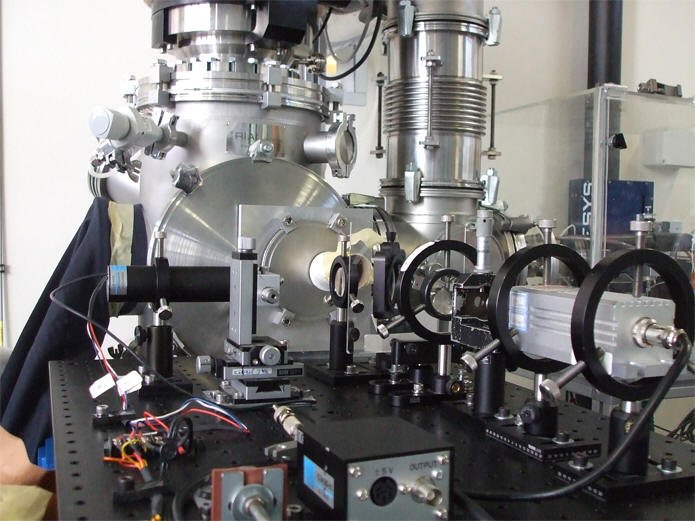Israeli company Particle Monitoring Technologies (PML) has come up with a dark laser beam that can monitor, separate and identify the tiniest particles in water, cement and fuel, to help ensure higher standards of water purification and a reduction in CO2 emissions. The company uses nano-technology — the study of manipulating matter on an tiny molecular scale — in order to analyze particles.
PML has recently entered into a partnership with Mekorot, Israel’s national water supplier, to monitor the purity of water in the tiniest of particles. PML’s system is able to differentiate between microscopic particles to identify carbon, algae, germs, parasites and viruses in water.
Mekorot said of PML: “It has developed technology and system that are based upon a unique structured, “dark” laser beam, interacting with the particles. The technology enables automatic and continuous monitoring of particle sizes (including sub-micron particles) and concentrations, in water before and after filtration.”
PML is also partnering with the auto industry to reduce emissions of CO2. Car manufacturer Fiat recently chose PML to head a three-year research project “intended to develop a method for measuring and analyzing emissions from vehicle engines in order to meet the increasingly strict standards of European and US environmental agencies.”
According Dr. Meir Teichner, Managing Director of PML, “all car manufactures are trying to reduce pollution emissions. The idea is to put a quick sensitive sensor between the engine and the exhaust that will constantly monitor the emission. If you are able to measure and fix the burning process you will reduce the pollution. In order to have a sensitive sensor you need to work with nano particles.”
PML’s advantage is that its sensors transmit data online in real-time, rather than in labs hours later. Teichner told NoCamels: “When you check the water quality and cleanliness in labs, you get results only within 24 hours, when that water has already gone down pipes and into people’s homes.”
PML says its systems can be applied in the oil and cement industries as well, two of the world’s biggest polluters: “The oil off-shore drilling market has strict rules about pouring particles of oil into the sea water,” Teichner said. “In the process of looking for oil, they recycle water from the sea to the rig and then pour it back into the sea, often with particles of oil in the water. The PML sensor can measure the particles of oil in the water so the oil companies can know the amount of oil that is poured into the water and they can better abide by the regulations.”
He added: “The cement industry is one of the biggest energy consumer, with constant heat and burning processes, which is why they are required to reduce the emission of CO2. A cement factory uses big filters to minimize the spread of pollution, but those filters are not enough for the small micron-sized particles that are found in the air even if it seems to be clean.”
The idea of PML’s analyzer was born from the “Kinrot Ventures,” a water technology incubator in the north of Israel. PML will release its system on the market in late 2011 and decided to move its headquarters to Canada, after the Canadian government recently invested in the company.
Related posts

Resilient And Nutritious New Plant-Based Milk Aims To Make A Splash

Chocolate From Cultivated Cocoa Comes Without Environmental Toll

Plastic Fantastic: Startup Takes PVC Back To Its Crude Oil Roots




Facebook comments